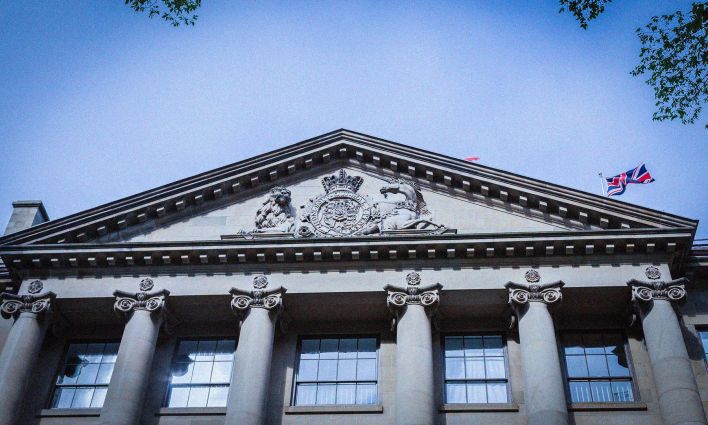
Has gas price regulation in Atlantic Canada cost consumers $205 million in higher gas prices since provincial governments began regulating gas prices? This is the claim of a new study released by the Atlantic Institute for Market Studies (AIMS), written by its president Marco Navarro-Génie.
This new AIMS study, “What’s Still Missing From Your Wallet?” updates its 2009 study “What’s Missing From Your Wallet? How Gas Prices Regulation Robs from Consumers,” which claimed that Atlantic Canadians had paid $156 million in extra costs up to that time.
Fortunately, people in Atlantic Canada can relax because all the numbers in both studies are wrong. Let’s see why.
What AIMS is attempting to calculate is how much consumers paid wholesalers and retailers before and after regulation for a litre of gas. If this “marketing margin” rises after regulation, AIMS claims that regulation caused it. Knowing the total number of litres of gas purchased gives its estimate of the increased costs to consumers.
I examined the data used in the 2009 AIMS study and reported the results in a paper published later that year by the Canadian Centre for Policy Alternatives (“Debunking the Myth That Gas Price Regulation Robs From Consumers”). I discovered that in comparing the marketing margin before and after regulation, the AIMS report had failed to adjust for inflation.
Whenever the dollar values of different times are being compared, they must be adjusted for changes in the cost of living. That way, the dollars being compared have the same purchasing power.
When this error (and others) were corrected, the AIMS method reaches radically different conclusions: marketing margins were lower in real terms after regulation in PEI, New Brunswick, and Newfoundland and Labrador, and were only slightly higher in Nova Scotia. The numbers in their 2009 report were completely wrong.
Without acknowledging my earlier paper and its criticism, the new study attempts to adjust for inflation, but uses an irrelevant US Consumer Price Index in part of its calculations. Once again, all of their numbers are wrong.
Of the $205 million that the current report claims regulations have cost consumers, $91 million of that is attributed to Prince Edward Island. The value is a simple extrapolation from the 2009 report that claimed regulation began on PEI in 1991, when in fact it began in 1988. (The source of the confusion: a new Petroleum Products Act came into effect in 1991, superseding a previous Act that implemented price regulation.)
As a result, AIMS’ attempt to compare marketing margins before and after regulation in PEI was actually comparing margins during two different periods when regulation was in place. The results said nothing about the effects of regulation. (In fact, when properly measured, margins fell substantially in Charlottetown after regulation began. However, it would be naïve to extrapolate that forward almost 30 years to draw conclusions about the effects of regulation today, although that is AIMS’ methodology.)
The values from the 2009 report figure prominently in the current one. This is an indication of the integrity of this report.
For New Brunswick, Nova Scotia, and Newfoundland and Labrador, the new report uses the 2009 figures (which didn’t adjust for inflation) and adds onto them inflation-adjusted estimates for 2009-2017. It does this addition of apples and oranges despite making its new estimates for the periods before and after the introduction of regulation: 2006 in New Brunswick and Nova Scotia and 2001 in Newfoundland and Labrador. They could have discarded the faulty 2009 figures and replace them with new estimates, but they did not.
Let’s consider the example of Newfoundland and Labrador.
The new study claims that people in the province have paid $63.1 million in additional gas costs since 2001. This is broken down into two parts: a cost of $65.3 million from the 2009 study (which also used incorrect exchange rate data in its calculations for the province) to which it adds a saving to consumers from regulation of $2.2 million for 2009-2017.
Its conclusion of a saving to consumers since 2009 comes from AIMS finding in the current report that margins across the three markets surveyed before and after regulation actually fell by 0.4 cents per litre. This directly contradicts the conclusion of their 2009 report which claimed that margins went up. Instead of concluding that regulation resulted in net savings to consumers, they insist on using the bogus 2009 figure, which is only slipped into the report in an appendix to produce the headline number.
Shortly after the release of the most recent AIMS study, the more than two dozen newspapers of the SaltWire Network across PEI, Nova Scotia and Newfoundland and Labrador carried an editorial that summarized AIMS’ conclusions and stated that the “information put forward by AIMS is compelling,” but wondered why governments would use regulation to raise prices to consumers. The editorial questioned if governments were raising the price of gasoline to collect more taxes.
Happily, no such conspiracy theories are necessary. Despite years of claims that gas price regulation has raised prices to consumers, AIMS has yet to produce any evidence that withstands scrutiny. Its reports have misled the public about the effects of regulation. Discussion about public policy should be based on fact not fiction.
Rod Hill is a professor of economics at the University of New Brunswick, Saint John campus, and a research associate with the Canadian Centre for Policy Alternatives – Nova Scotia office.






